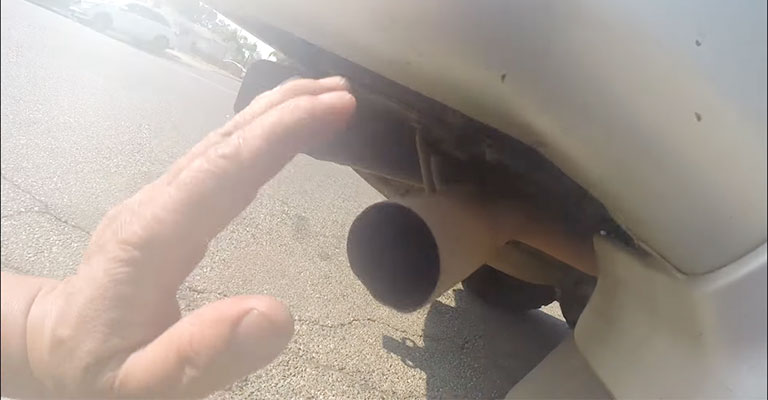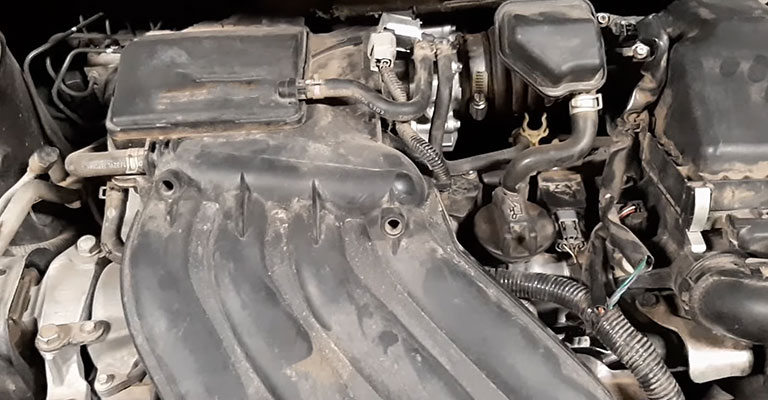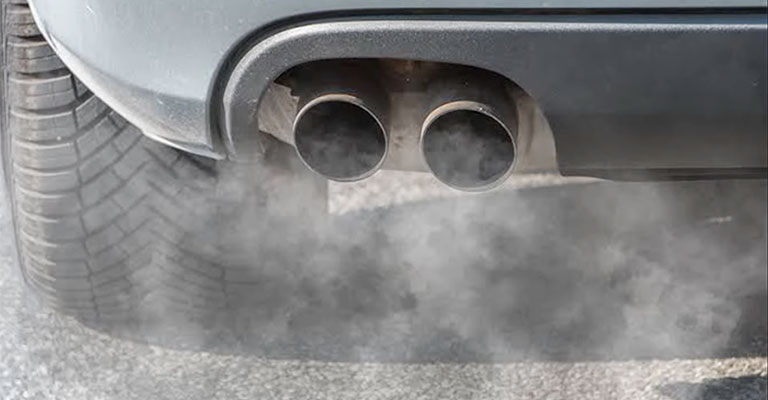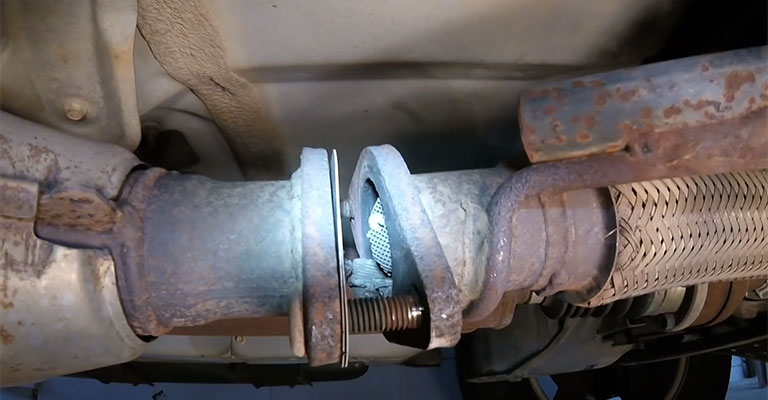A catalytic converter is one of the essential components of a car’s exhaust system. However, like any other part of a car, it may sometimes fail and cause problems with your vehicle. Common problems associated with a catalytic converter include engine misfire, smoke, and poor performance.
This post is about the smoke issue and precisely addresses why a faulty/bad catalytic converter smokes. If you’re a car owner who is experiencing such a problem or related problem with your car’s catalytic converter, we got your back with ideal answers.

What is a Catalytic Converter?
It’s a component found in the exhaust system of a motor vehicle found underneath, whereby it’s attached between the muffler and the engine.
Why is a catalytic converter important anyway? It contains catalysts (reduction and oxidation catalysts) for converting harmful/toxic gases from the internal combustion engine into less harmful ones before they’re released into the air. It also improves your car’s gas efficiency and performance.
What are the Signs of a Bad or Failing Catalytic Converter?
Below are four signs to watch out for to know if a catalytic converter is bad or failing:
Sluggish engine or reduced acceleration

If you notice poor acceleration or your engine is sluggish, it shows a possibility of a clogged catalytic converter. How does it happen anyway? A clogged catalytic converter prevents exhaust gases from the engine from escaping effectively; thus, you have trouble starting your car. It’s due to increased exhaust pressure that often causes a car to stall.
The smell of rotten eggs or sulfur from your exhaust
When a catalytic converter has internal damage, it doesn’t easily convert exhaust gases. Consequently, it produces a sulfuric or rotten eggs smell from the exhaust.
Decreased fuel efficiency
A failing catalytic converter is one cause of declining fuel efficiency, especially when it’s clogged. Since exhaust gases are trapped in the engine, and there is minimal airflow, an engine tends to burn more fuel resulting in a noticeable decrease in fuel efficiency.
Dark exhaust smoke

Dark (black) exhaust smoke also indicates possible defects or clogging in a car’s catalytic converter. As outlined above, a faulty catalytic converter leads to exhaust gas (usually dark) trapped inside the engine. The gases burn up, making them much darker, and they come out as black smoke.
Why does a Bad Catalytic Converter Smoke?
There are various reasons why a catalytic converter smokes. Also, it produces smoke of different colors that symbolize different car problems, as discussed below.
Clogging in the catalytic converter
A clogged catalytic does allow exhaust gases to come out of the engine too easily. As a result, the engine has increased temperature and decreased airflow through the converter. As a result, the engine overheats, and the catalytic converter starts to smoke.
In such a scenario, you’re more likely to have black smoke from the catalytic converter. Notably, you can get blue smoke when the engine has unbalanced airflow.

High backpressure and trapped exhaust gas
High backpressure in the engine is another reason a faulty catalytic smokes. A clogged or defective converter causes a significant increase in backpressure within the engine, which is likely to lead to a malfunction. Consequently, a backpressure increase prevents a clear passage of the exhaust gas through the catalytic converter and causes smoke
If unburnt fuels directly enter the exhaust system
Sometimes fuel may remain unburnt, specifically when you have faulty pistons or worn-out spark plugs. When the unburnt fuel is released into the exhaust system, it goes through a catalytic converter and causes smoking. In such a case, you’re likely to get white smoke from your tailpipe
How to Fix a Catalytic Converter Smoking
There are three leading causes of catalytic converter smoking. They include clogging of the converter, unburnt fuel getting into the exhaust system, and increased backpressure to the engine. Depending on whatever issues are causing your catalytic converter to smoke, there are several ways to fix it.
Clean or unclog the catalytic converter
Can a clogged catalytic converter be fixed? Yes, if your car catalytic converter is not severely clogged, you may opt to unclog or clean it. It’s cheaper than replacing it.
There are two options on how to go about it, i.e., use a catalytic converter cleaner or remove the catalytic converter from the vehicle for cleaning.
Catalytic converter cleaners are available in automotive stores or easily be purchased from online stores. However, ensure you buy a cleaner perfect for your exact car’s make or model. It allows you to unclog the converter without removing it.
Alternatively, you could clean the catalytic converter by removing it from the car and using a pressure wash to clean it at low pressure.
Note: Most vehicle manufacturers don’t recommend cleaning a catalytic converter since it could damage the internal catalyst that makes it effective in its function.
Replace the converter
Another way to fix catalytic converter smoking is a replacement. This option is more expensive than cleaning, but it’s more effective.
Replacing a bad catalytic converter is the best solution if your car is very old or the converter is extremely clogged or damaged by rust.
So, should a new catalytic converter smoke? No, a new catalytic converter shouldn’t smoke. It’s not clogged; thus, the exhaust gas passes freely, and there is minimal back pressure.
Replace worn-out spark plugs
Suppose you conduct a diagnosis of a catalytic converter and realize it’s not clogged, yet it’s smoking; you should consider replacing your spark plugs. Usually, worn-out spark plugs make unburnt fuel directly get into the catalytic converter and cause smoking. Therefore, replacing your spark plug will help solve this issue.
Bottom Line
Dark exhaust smoke, a decrease in fuel efficiency, and a sluggish engine in your car are signs of a bad catalytic converter. Such problems are often caused by clogging in the converter and trapped exhaust gas. However, you could opt to clean/unclog your catalytic converter or replace it.
While you can still drive your car with a faulty catalytic converter, you’ll note a significant drop in its performance. Therefore, you should consider getting the problem fixed as early as possible to maintain excellent performance and avoid future damages to your engine, such as misfires.
Leave a Reply